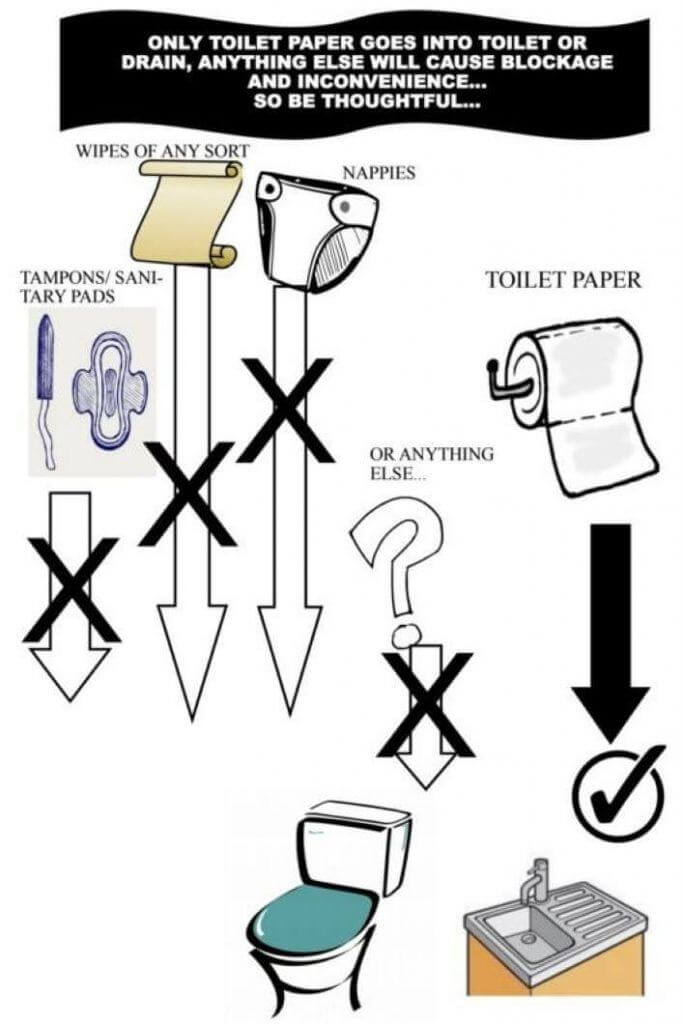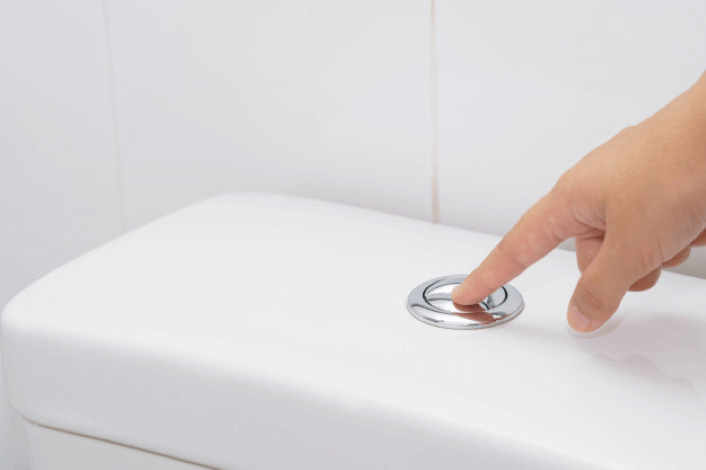Toilets are a modern addition that is easy to take for granted. If your toilet is having recurring issues, isn’t flushing properly, or is getting frighteningly close to overflowing, chances are something has been flushed that it shouldn’t have.
Let’s examine how your plumbing functions to better understand what to flush and what not to flush down your toilet.
What happens when you flush your toilet
If you don’t understand how toilets and pipes function, it can be easy to underestimate the damage your flushing is doing. When the toilet is flushed, the water goes through the sewer pipe through junctions and bends to end up at the sewage treatment plant. This plant is where the harmful materials are removed, and the water is sanitised and processed.
The pipes that lead to this point are vast and expansive, forming a conglomerate of sewage from all the homes surrounding yours. Non-flushable items travelling through these pipes can cause major issues to the sewerage system for not only your home but for your whole neighbourhood.
Even worse, chemicals and small items can make their way into the waterways, putting put public health and marine life at risk.
What Not to Flush Down Your Toilet
Flushing the following items can result in a clogged drainpipe, damaging the local water system and in some cases, causing irreversible environmental damage.
- Nappies
- Tampons/Pads
- Wipes (Including flushable wipes)
- Paper Towels
- Cotton Balls/Buds
- Dental Floss
- Hair
- Bands-Aids
- Medication/Chemicals
- Razors/Syringes
- Fats/Oils/Grease
- Kitty Litter
- Too Much Toilet Paper
Reasons to avoid flushing these problematic items down your toilet

It is not always the typical suspect that can cause damage to your toilet. To help you to avoid a catastrophe, we’ve created a comprehensive list of some of the most common household products and objects that cause damage to the toilet and its pipes.
Nappies
Nappies are highly absorbent and often chock full of waste. If they are flushed, they are almost guaranteed to get lodged in your sewer pipes, sucking up all the water and forming an impenetrable force against the rest of your waste flowing freely.
Tampons/Pads
The absorbency of feminine hygiene products will wreak the same havoc on your pipes as nappies, expanding several times larger than their original size when wet. The toilet water can then back up and overflow, damaging your septic system.
Wipes (even the ‘flushable ones’)
Although they may be marketed as flushable, wipes of any kind certainly aren’t. Due to the inability of wipes to decompose quickly, they can cause clogs in your drains.
Paper Towels
We’ve all had the unfortunate experience of running out of toilet paper, but if you need to use a paper towel, you should avoid flushing it down the toilet. Paper towels are designed to absorb water and liquids, not dissolve as toilet paper does. This makes them a common culprit for blocked drains.
Cotton Balls & Buds
Even though these commonly used items are seemingly small enough to flush, they are deceptive. When flushed, these items don’t break down in the water and can build up within pipelines to cause damage. Additionally, these small items are at risk of ending up in waterways if flushed.
Dental Floss
Dental floss does not break down easily in water and is made to be durable. More so, floss can wrap around other items if flushed, creating larger clumps that can clog sewers and pipes. Keep a bin close to your basin so tossing floss in the right place is made simple.
Hair
Just like dental floss, hair can wrap around other items if flushed and create a larger problem down the line. Wet hair can become sticky and heavy, and before you know it – you’ve got a hairball clinging to the diameter of your pipes. To protect your drains further, make sure you’ve got adequate drain covers on your shower and sink drains.
Band-Aids
Most band-aids and bandages are made from non-biodegradable products so they can do an adequate job of healing wounds. The sticky adhesive can cling to other items in your piping, and if they manage to slip through to the waterways, band-aids can be detrimental to marine life.
Medications & Chemicals
Liquid medications and chemicals can wreak havoc on the waterways and caused irreversible pollution. Ensure that you’re disposing of old medicines and household cleaning products appropriately to avoid injuring precious marine life.
Razors & Syringes
This seems like a no brainer, but unfortunately, it does still happen. Sharp objects should be disposed of in the correct type of sharps bin to ensure safety for workers and wildlife. Razors can damage and chip the inside of your pipe, resulting in cracks and blockages.
Fat, Oil & Grease
Generally, you shouldn’t flush food down the toilet at all, but foods that are particularly oily, fatty, or greasy can solidify within your pipes and attach to the interior lining, blocking other items from successfully flowing down to the septic tank.
Kitty Litter
Feline waste should never go in the toilet, as it can result in potentially harmful parasites being released into the water supply. Many water treatment plants can’t filter these kinds of pollutants, and your kitty litter dumping can put public health at risk.
Too Much Toilet Paper
Too much of a good thing is still a bad thing, and even toilet paper can cause clogs in your drains if not used properly. Toddlers shoving a whole rolls worth of toilet paper in the bowl can be enough to warrant a visit from a plumber, so watch that toilet paper usage.
What to do if your toilet is blocked
If you’re experiencing signs of a blocked drain, chances are the problem has begun in your toilet.
If you’re having consistent blockage issues, if your toilet won’t flush properly, or has poor water pressure, it may be time to call in a professional pipe relining company to check out the health and wellness of your pipes.
Not ready to call in a professional pipe repair specialist? Check out our strategies on how to unblock a clogged toilet without a plunger.
Thanks to innovative trenchless pipe relining technology, our crew can get into the nitty-gritty of your pipes using use CCTV cameras to examine every crack, clog and piece of debris that may be causing your plumbing issues.
If your pipes are in a bad state, we can repair them without damaging your lawn or digging trenches through your yard. We understand that sometimes things that shouldn’t end up in your toilet (just blame the dog!), and we will work with non-judgemental haste to get your toilet flushing how it should.
To find out more about our pipe relining cost in your area, contact us. Otherwise, book your free consultation today by filling out our handy online information form.
Back to Top